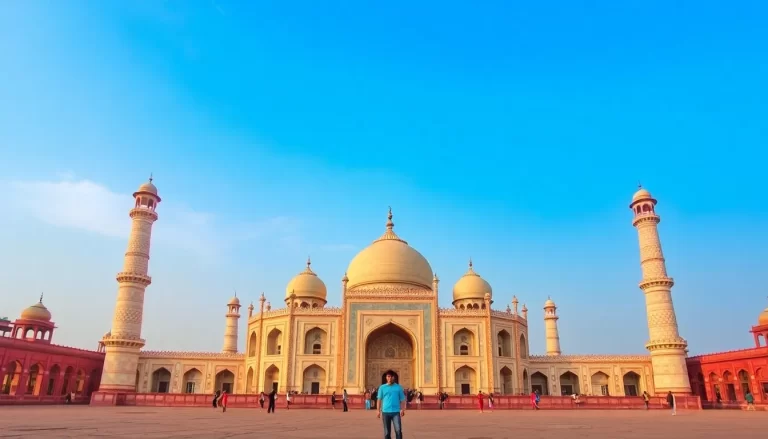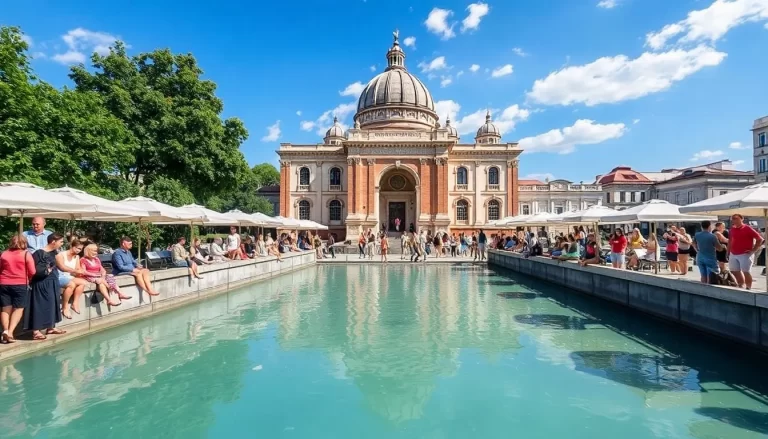Traveling the world has become more accessible than ever, but this newfound affordability raises important questions about sustainability and local impact. The concept of «budget travel» has evolved significantly, making it essential to explore the implications of traveling on a budget and whether it should be this inexpensive.
The Evolution of Budget Travel
The notion of budget travel has long been associated with affordability. It encompasses strategies such as seeking out deals, venturing off the beaten path, dining at local eateries rather than tourist hotspots, and opting for hostels over hotels. For many travelers, the goal is to immerse themselves in local cultures while keeping costs low.
In the 2010s, the advent of the sharing economy, with platforms like Airbnb, along with budget airlines offering affordable long-haul flights, transformed the travel landscape. This made it significantly easier for diverse groups of people to explore new destinations.
As a result, global tourism surged, increasing from approximately 946 million annual travelers to an astonishing 1.4 billion. While this growth reflects a democratization of travel, it has also generated challenges for communities struggling to accommodate so many visitors.
The Challenges of Overtourism
As travel became more affordable, many popular destinations experienced overtourism, leading to issues such as overcrowding and rising living costs for locals. Residents often felt overwhelmed, as their neighborhoods transformed into tourist attractions, affecting the quality of life.
Before the COVID-19 pandemic, overtourism was a pressing concern, prompting discussions about sustainable travel practices. Communities began to ask how they could support tourism while preserving their local environments and cultures.
Is Inexpensive Travel Sustainable?
While budget travel presents numerous benefits, it also raises critical questions about sustainability. Is it appropriate for travel to be so cheap if it leads to negative consequences for the environment and local populations? The challenge lies in balancing accessibility with the need for sustainable practices.
Travel can expand horizons and foster understanding among cultures, but mass tourism can strain local resources and ecosystems. This paradox begs consideration: should we place tighter restrictions on travel to prevent damaging popular destinations?
How Technology Changed Travel
Technology has undeniably simplified the travel process, making it easier to find cheap flights, book accommodations, and navigate new cities. The rise of travel blogs and social media has democratized information about budget travel, making it readily available to anyone with internet access.
However, this accessibility comes with its own set of challenges. The rapid influx of visitors to destinations, often facilitated by platforms like Airbnb, has led to issues such as housing shortages, noise disturbances, and safety concerns. Many locals now find themselves living in neighborhoods primarily populated by tourists.
Environmental Impact of Cheap Travel
Particularly concerning are the environmental implications of rising travel rates. Short-haul flights, while often cheaper, have a disproportionately high carbon footprint. As travelers flock to popular locales without regard for environmental sustainability, the strain on local ecosystems grows.
As travelers, we must consider:
- The environmental cost of our transportation choices.
- The impact on local wildlife and natural landscapes.
- The sustainability of tourism infrastructure.
Local Communities and Economic Disparities
As more travelers descend on certain destinations, local communities may suffer economic disparities. In cities like Mexico City, the influx of foreign residents has led to rising rents and gentrification, pushing long-time residents out of their neighborhoods.
Consequently, it is essential to recognize the responsibility of travelers. By choosing to support local businesses and engage with communities respectfully, travelers can help mitigate some of these adverse effects.
Balancing Accessibility with Responsibility
While it is crucial for travel to remain accessible to all, it is equally important to foster responsible tourism practices. Instead of encouraging a mass tourism culture that harms local communities, we should advocate for a model of travel that prioritizes sustainability.
This includes:
- Choosing accommodations that adhere to local regulations and support community welfare.
- Utilizing public transportation or eco-friendly options to reduce carbon footprints.
- Traveling during off-peak seasons to alleviate pressure on popular destinations.
Innovative Solutions to Overtourism
Addressing overtourism requires innovative solutions from various stakeholders. Local governments, businesses, and travelers must collaborate to create sustainable tourism practices. Some effective strategies include:
- Implementing visitor caps in highly trafficked areas.
- Establishing taxes or fees for tourists that contribute to local infrastructure.
- Encouraging the development of alternative destinations to distribute tourist traffic more evenly.
Personal Responsibility and Sustainable Choices
As travelers, we have the power to make choices that support sustainable tourism. Simple actions, such as minimizing waste, choosing eco-friendly travel options, and respecting local cultures, can significantly impact the communities we visit.
By fostering a mindset of responsibility, we can enjoy the benefits of travel while also giving back to the places we explore. This reciprocal relationship is vital for ensuring that tourism remains a viable and enriching experience for future generations.
Final Thoughts on Affordable Travel
The question of whether travel should be inexpensive is complex. While affordability is crucial, it should not come at the expense of local communities and the environment. Encouraging thoughtful travel practices can help preserve the beauty and integrity of our world while making it accessible to all.







